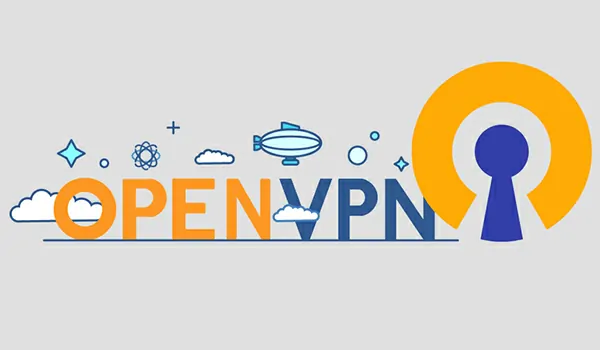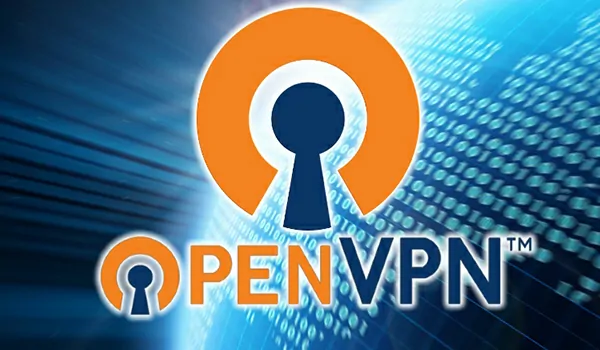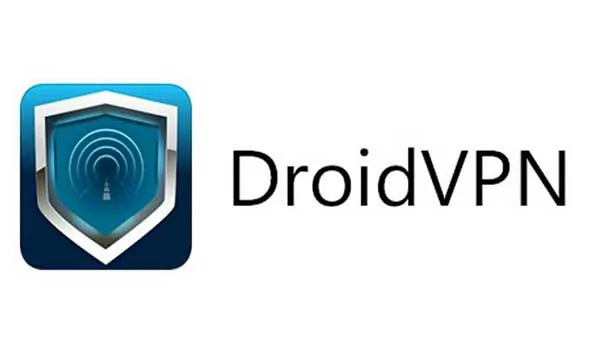OpenVPN is a highly acclaimed and commonly used VPN protocol in the cybersecurity field. Unlike standard VPN services, OpenVPN is an open-source VPN protocol, not a single provider. It is used by several VPN providers to offer safe, fast, and flexible connections. This analysis will look at OpenVPN’s strengths and disadvantages and determine whether it is still a smart choice in 2024.
What Is OpenVPN?

OpenVPN is an open-source VPN protocol created by OpenVPN Technologies. It is widely known for:
- Secure encryption and security features.
- Individuals and businesses alike can benefit from its customizability.
- Platforms supported include Windows, macOS, Linux, Android, and iOS.
OpenVPN is not a VPN service, but rather the backbone protocol for numerous famous VPNs such as NordVPN, ExpressVPN, and Surfshark.
Key Features of OpenVPN
1. Strong encryption.
OpenVPN offers AES-256 encryption, which is the industry standard for safeguarding data against brute-force assaults. This makes it one of the most secure protocols currently accessible.
2. Open Source Code
The code for OpenVPN is available to the public since it is open source. This transparency enables security professionals to audit, assess, and improve its dependability. It also assures that there are no concealed vulnerabilities or backdoors.
3. Multiple Protocols.
OpenVPN provides two basic transport protocols.
UDP (User Datagram Protocol): This protocol is optimized for speed and is ideal for streaming or gaming.
TCP (Transmission Control Protocol) is a reliable protocol that is best suited for operations that need constant connections, such as surfing or file transfers.
4. High customizability.
OpenVPN is extremely adjustable, making it ideal for sophisticated users and IT professionals. It may be used to create private networks or integrate into existing VPN infrastructures.
5. Multiplatform Support
OpenVPN may be used on a variety of systems, including:
Desktop operating systems include Windows, MacOS, and Linux.
Mobile operating systems: Android and iOS.
Routers and embedded devices.
6. Authentication Options.
Multiple authentication mechanisms are supported, including username and password combinations, pre-shared keys, and sophisticated TLS/SSL certificates.
7. High Scalability.
Ideal for individuals and businesses. OpenVPN Access Server, the corporate solution, enables enterprises to set up secure and scalable VPNs.
Advantages of Using OpenVPN

1. Exceptional Security
OpenVPN is one of the most secure protocols today, including strong encryption, safe tunneling, and reliable data security. Its open source nature enables continuous progress and transparency.
2. Versatile Applications
OpenVPN is suitable for personal privacy, corporate networking, and secure remote access. It is suitable with the majority of use cases, including accessing geo-restricted material and protecting critical business communications.
3. Widely adopted.
OpenVPN is trusted by many of the world’s major VPN providers and companies, and it has an established track record of dependability and effectiveness.
4. Flexible Deployment
The versatility of OpenVPN makes it suitable for a broad range of users and circumstances, from consumer-grade VPNs to corporate networks.
Limitations of OpenVPN
1. Setup Complexity
While OpenVPN provides unparalleled configurability, setting it up manually might be difficult for novices. Frequently, configuration files must be downloaded and settings adjusted.
2. Slower speeds.
OpenVPN can often provide slower speeds than newer protocols such as WireGuard, particularly over TCP. UDP typically outperforms rivals, however it may still fall short in raw performance.
3. No native app.
Unlike standalone VPN providers, OpenVPN does not provide a user-friendly application. Users usually require third-party software or manually incorporate it into their devices.
Performance and Use Cases
1. Streaming
OpenVPN is a good tool for evading geo-restrictions and accessing streaming services. However, its speed may not be comparable to protocols such as WireGuard, particularly for HD streaming.
2. BitTorrenting
OpenVPN enables P2P activities and is popular for torrenting owing to its excellent encryption and dependability.
3. Gaming
While OpenVPN is safe, its latency may be an issue for gamers that like minimal lag.
4. Corporate Networking.
OpenVPN excels in business situations, where its scalability and enhanced security make it suitable for implementing secure remote work solutions.
How OpenVPN Compares to Competitors
1. OpenVPN vs. WireGuard
- Security: Both are secure, but OpenVPN has been battle-tested for decades.
- Speed: WireGuard is faster due to its leaner code.
- Ease of Use: WireGuard is simpler to set up.
2. OpenVPN vs. IKEv2/IPSec
- Stability: OpenVPN is more reliable on unstable networks.
- Speed: IKEv2/IPSec tends to be faster.
3. OpenVPN vs. PPTP/L2TP
- Security: OpenVPN is far superior, as PPTP and L2TP are outdated and less secure.
Pros and Cons of OpenVPN
Pros
- Exceptional security and encryption.
- Open-source and transparent.
- Highly configurable for advanced users.
- Trusted by major VPN providers.
- Supports a wide range of platforms and use cases.
Cons
- Slower than modern protocols like WireGuard.
- Manual setup can be complex for beginners.
- No standalone app; requires third-party tools or manual integration.
Conclusion: Is OpenVPN Good?
Yes, OpenVPN is a fantastic protocol, especially for those that value security and stability. Its open source nature and excellent encryption make it a reliable alternative for both people and companies. However, it may not be the fastest or most convenient alternative for casual users.
Who should use OpenVPN?
- Users who care about their privacy and embrace open source transparency.
- Advanced users or IT experts who are experienced working with manual setups.
- Enterprises want to establish safe and scalable networks.
Who would consider alternatives?
- Beginners looking for a user-friendly solution.
- Users that value speed for gaming or streaming (WireGuard may be preferable).
Verdict: OpenVPN is still one of the most secure and adaptable VPN protocols in 2024. While it is neither the fastest or easiest to use, its strong encryption and proven stability guarantee that it remains a trusted choice for safeguarding internet connections throughout the world.



